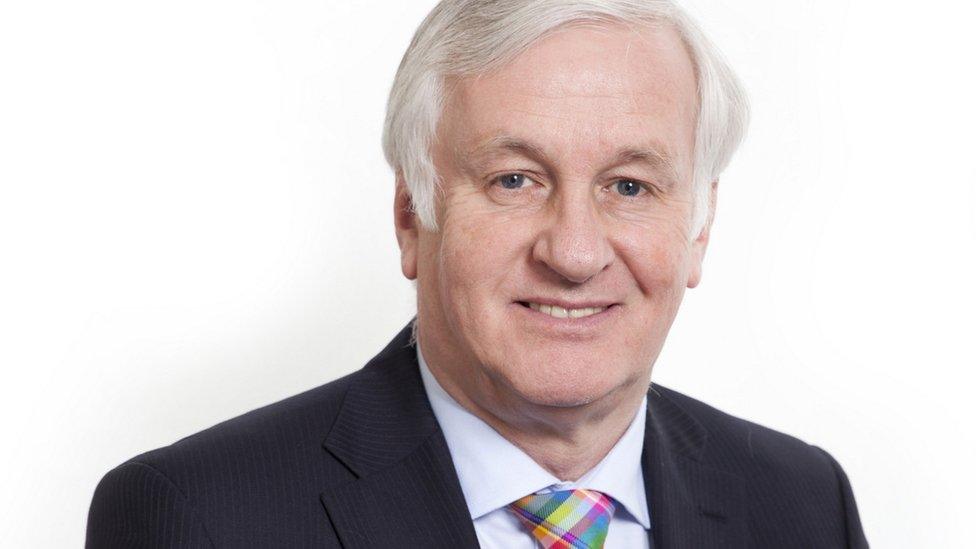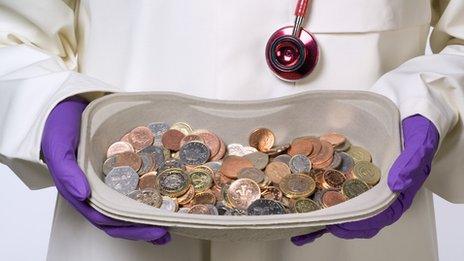How one hospital got rid of high-cost overtime
- Published

Wrightington, Wigan and Leigh NHS Foundation Trust stands out in the BBC investigation into high-cost overtime payments to consultants - it doesn't pay them.
While other hospitals are seeing the overtime bill rise, the trust, which runs two hospitals and a specialist eye unit in north-west England, stopped using premium rates in 2010. So how did it buck the trend?
Chief executive Andrew Foster said the 2008 financial crisis was the prompt for getting tough.
"We immediately realised the NHS was going to enter a period where money was tight," he said.
"The budget was set for a few years, but we knew we had to look at what we were spending and how money could be saved so we could be in a good position when the squeeze on funding started.
"We took the decision that waiting list initiative payments would end.
"I don't think it is very defensible to pay a huge premium to one group of staff and not to other groups of staff.
"No other member of staff gets triple pay for doing extra shifts."

In the lead-up to ending them, the trust starting asking its consultants what solutions could be found.
"No-one likes to see money taken off them, but consultants could see the writing on the wall," said Mr Foster.
In the end, different solutions were found in different areas. For example:
In urology, consultants agreed to do extra shifts of four hours for plain time. The average went up from 11 to 13 a week
In radiology, they moved to a pay-per-case basis, which has improved productivity
In endoscopy and ophthalmology, nurses have taken on some of the tasks of consultants
It led to a saving of £1.7m a year.
Mr Foster said: "We were helped that we had a really good working relationship with our consultants.
"They understood why we were doing this, and that is why we have been able to push through these changes when other haven't.
"I am not saying that it was straightforward in all cases.
"We did have to pay for some work to be done privately to start with in some specialities - and that meant a financial hit to start with - but we knew we could not pay any more of these payments as it would not have been fair on those areas that had agreed to the changes.
"That has now stopped, and we have managed to make savings."
- Published15 March 2016
- Published25 February 2016
- Published16 December 2015

- Published9 October 2015
- Published18 June 2014
